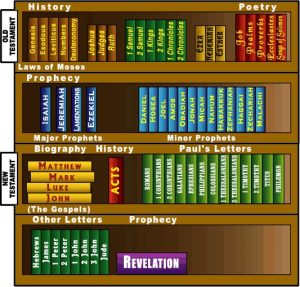Learning Styles, Literature and Reading the Bible
“Learning styles” is a debated topic among educators. I am neither a devoted convert nor a skeptic when it comes to theories of learning styles, but I have found some insights in the literature that have been useful to me in my role as a Bible teacher.
I have especially appreciated the  work of Honey and Mumford (1986), whose discussion of learning styles goes beyond how students receive information to how they prefer to process that information. When planning a unit in Bible class, I have found it useful to consider how I can best engage students with each of the four learning style preferences with the Bible text they are reading. This usually leads me to planning a variety of activities for each unit.
work of Honey and Mumford (1986), whose discussion of learning styles goes beyond how students receive information to how they prefer to process that information. When planning a unit in Bible class, I have found it useful to consider how I can best engage students with each of the four learning style preferences with the Bible text they are reading. This usually leads me to planning a variety of activities for each unit.
In ad dition to learning styles, another thing to consider when planning engaging activities in Bible class is the type of literature being studied. God has communicated to us through a wonderfully diverse selection of writing styles… narrative, poetry, letters, prophecy (just to name a few). Different literary styles require different approaches to understand and apply. Some types of learning activities work well when reading a Gospel narrative, but not so well if you are studying the Old Testament law code. Other types of activities might be needed when reading poetic passages such as the Psalms.
dition to learning styles, another thing to consider when planning engaging activities in Bible class is the type of literature being studied. God has communicated to us through a wonderfully diverse selection of writing styles… narrative, poetry, letters, prophecy (just to name a few). Different literary styles require different approaches to understand and apply. Some types of learning activities work well when reading a Gospel narrative, but not so well if you are studying the Old Testament law code. Other types of activities might be needed when reading poetic passages such as the Psalms.
Allow these considerations (learning styles and literary types) to ignite your creativity when planning Bible lessons!
Reference: Honey, P. and Mumford, A. (1986) The Manual of Learning Styles, Peter Honey Associates.
Comments